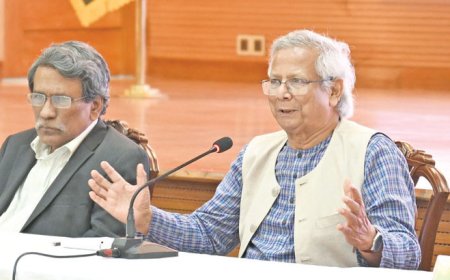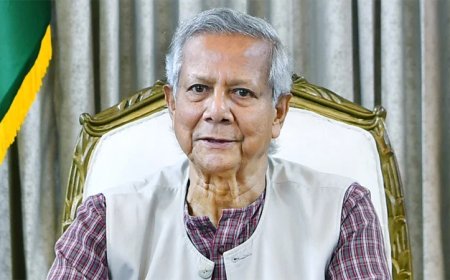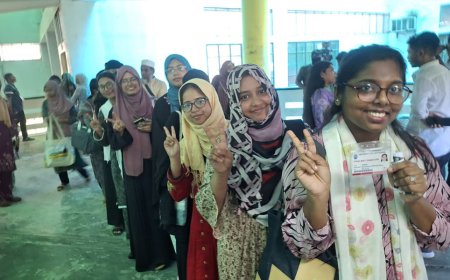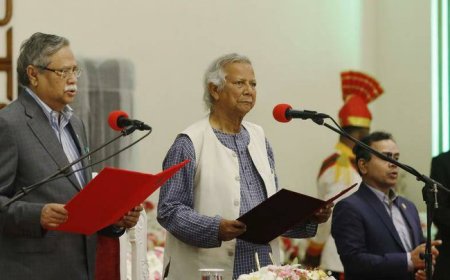The draft of the Reform Commission suggests a bicameral parliament consisting of 505 seats
The draft of the Reform Commission suggests a bicameral parliament consisting of 505 seats
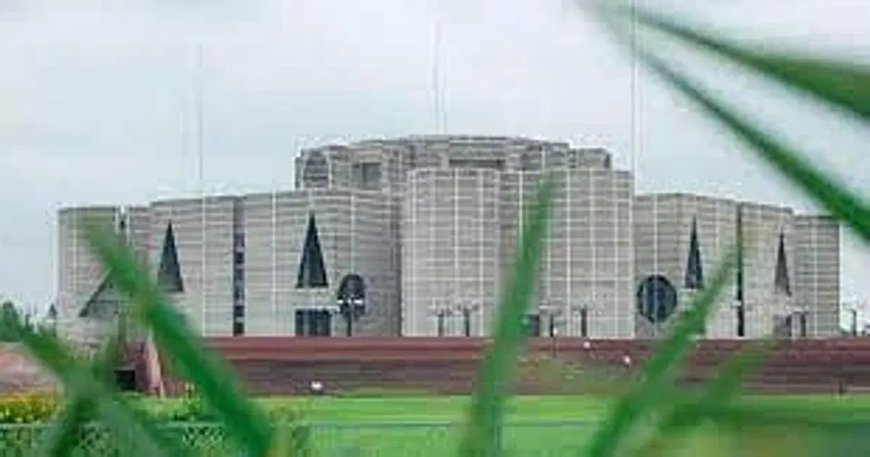
The Constitutional Reform Commission is poised to recommend the establishment of a bicameral National Parliament. According to the draft proposal, the lower house will consist of 400 seats, with elections conducted under the existing system. Of these, 100 seats will be reserved for women, who will be elected directly. The upper house will have 105 seats, with elections conducted through a proportional representation system. In total, the two houses will comprise 505 seats.
These details have been sourced from within the Constitutional Reform Commission. The commission aims to propose various measures to prevent constitutional dictatorship and ensure a balance of power, preventing the concentration of authority in one individual’s hands. Additionally, the commission will suggest changes to the fundamental principles of the current constitution. The proposals are nearing finalization, and the report will be submitted to the interim government’s chief advisor, Dr. Muhammad Yunus, on Wednesday.
Besides the Constitutional Reform Commission, the Electoral System, Anti-Corruption, and Police Reform Commissions are also set to submit their reports on the same day, as confirmed by representatives of the respective commissions.
The Judiciary and Public Administration Reform Commissions, formed in the first phase, are expected to submit their reports by the end of the month.
Sources indicate that the reform commissions will propose significant changes within their areas, with recommendations divided into short-term and long-term implementation categories. Some changes will require constitutional amendments, which cannot be enacted until a new parliament is formed through elections, as there is no current parliament.
Once the interim government receives the reports, it will initiate talks with political parties later this month. If consensus is reached on the proposals, the dialogue could lead to a roadmap for implementation.
Regarding the bicameral parliament, the country’s National Parliament, the Jatiya Sangsad, has been unicameral since independence. The current parliament consists of 350 seats, including 50 reserved for women, allocated to political parties based on the number of general seats they win. Under the draft proposal, elections for the 400 seats in the lower house will continue as before, while the upper house will consist of 105 seats. Five of these seats will be directly nominated by the President to ensure representation of marginalized groups, while the remaining 100 seats will be elected through a proportional representation system. Political parties will be encouraged to ensure diverse representation when nominating candidates for the upper house.
The proposal for a bicameral parliament has been long supported by political parties such as the Bangladesh Nationalist Party (BNP), which reiterated this demand in a 62-point proposal to the Constitutional Reform Commission. The Jatiya Nagorik Committee has also called for a bicameral system, and many participants in discussions between the Constitutional Reform Commission and the Electoral Reform Commission expressed support for this change.
One key objective of the proposed reforms is to prevent a concentration of power and constitutional dictatorship. The commission’s recommendations aim to decentralize power, introduce term limits for the prime minister, prevent the prime minister from holding dual roles as party leader and parliamentary leader, ensure executive accountability, and create provisions for an interim government during elections. Additionally, the commission will propose a balanced distribution of power between the prime minister and president, as well as between the executive, legislative, and judicial branches, to ensure judicial independence.
The commission also plans to recommend revisions to the constitution’s fundamental principles, including adding “Equality, human dignity, and social justice,” with the potential inclusion of two additional principles.
Professor Ali Riaz, head of the Constitutional Reform Commission, emphasized that the goal is to prevent the centralization of power, which has historically occurred in one individual, and ensure checks and balances to prevent abuse of power.
The Electoral Reform Commission is preparing a proposal to create a long-term effective system for free, impartial, and fair elections. This includes institutional changes and amendments to strengthen the election commission, ensure elections under a neutral caretaker government, and grant the election commission more control over election-related institutions. The commission also proposes changes to the National Assembly Election Act, increasing the powers of the election commission, creating mechanisms to hold the commission accountable, and introducing provisions for 'no' votes, direct voting for reserved women’s seats, and changes to the nomination process for political parties.
The Anti-Corruption Commission (ACC) Reform Commission is also expected to submit its report on Wednesday. Its recommendations include amendments to the ACC Chairman and Commissioner Appointment Act, ensuring transparency in appointments, strengthening the commission’s independence, and creating measures to address staff irregularities and delays in corruption investigations.
The interim government, which emerged from the student-public uprising, is overseeing these comprehensive reforms. While there is some skepticism about the potential for consensus, political analyst Professor Mahbub Ullah remains hopeful, believing the existing political differences are manageable.
What's Your Reaction?








